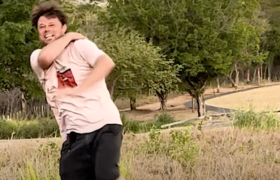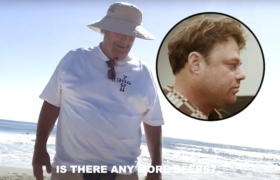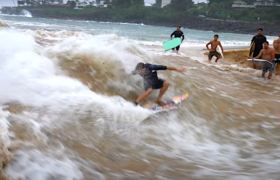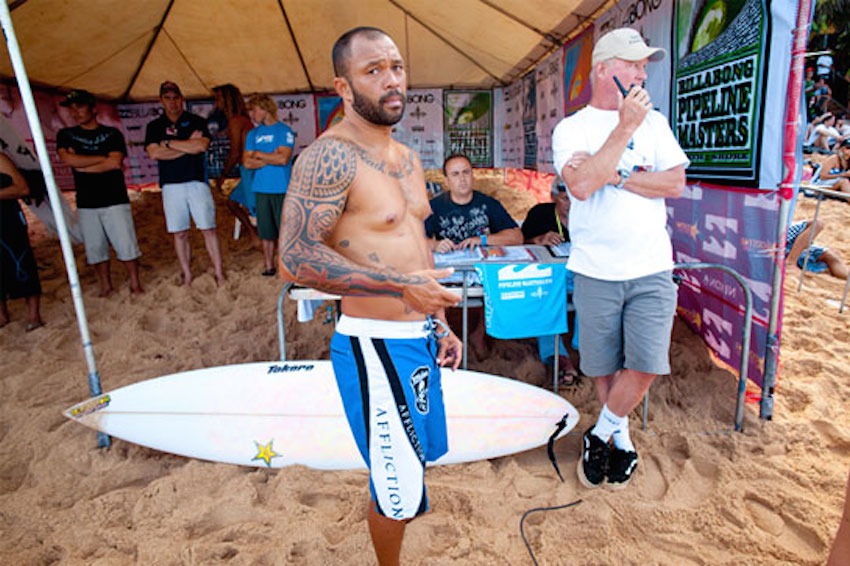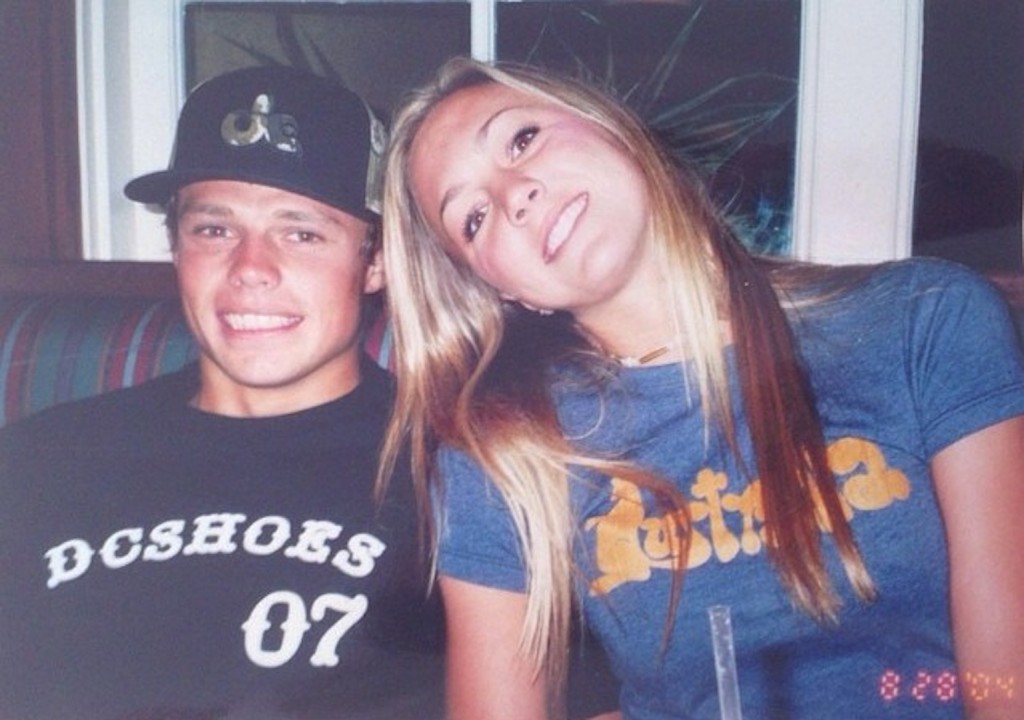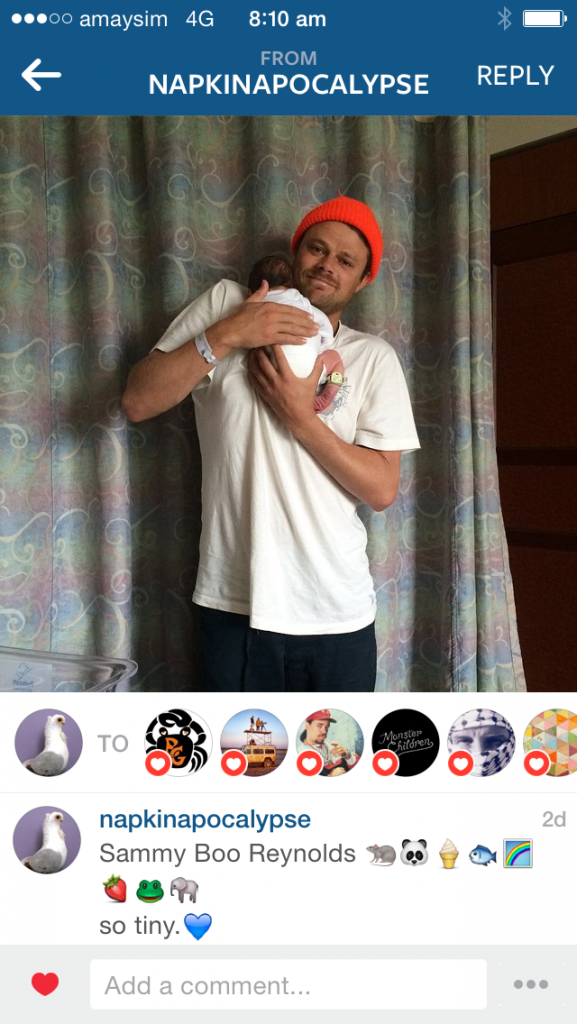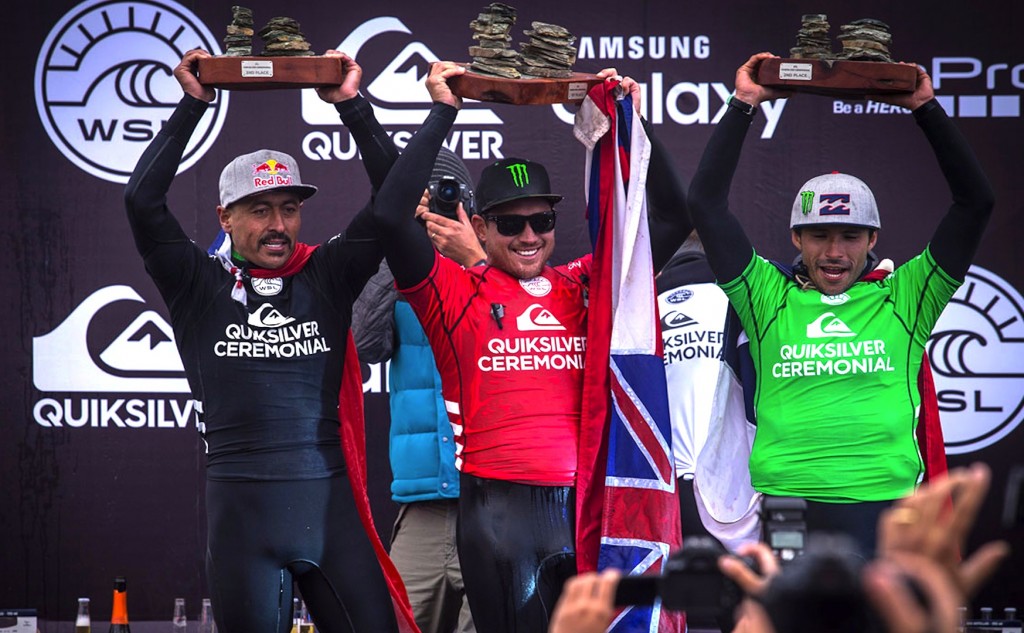Smart biz sense or corpo thuggery?
After much hype regarding the size and quality of surf predicted for the first event of the 2015 BWWT, the surf world was treated to a last-minute back-pedal from the WSL.
In the days leading up to the event it was quickly and quietly announced via press release that the event would not be streamed live due to technical limitations created by the Chilean internet infrastructure. Instead surf fans would be treated to an exciting series of numbers designating scores which would be posted live sans context, commentary, or visual medium. It was a bold move on the part of the WSL, retaining all the excitement inherent in watching numbers change, but removing the unnecessary distraction of actually watching people surf.
Meanwhile, a crew of Chilean sports broadcasters gave lie to the notion of their country’s technological inadequacy, setting up beach front and preparing to stream the event to the “legions” of surf fans scouring the internet for an event stream they’d been expecting but was, curiously, no where to be found.
And, thus, internet controversy was born. The Chilean stream was shut down as the event began and the first event of the 2015 BWWT unfolded with only local eyes watching. (In case you were wondering, Makua won.)
I reached out to Carlos Gallardo, director and host of the Chilean TV program Via de Escape, the broadcasters muscled out by the WSL, to get his take on the whole shebang.
(The following has been edited for length and translated using online resources and my own somewhat rudimentary Spanish skills. Polyglot readers can view the unedited Spanish text here:)
“We were surprised that this year’s WSL decided not to transmit the event, appealing to geographical impossibilities and technical complications that do not really go beyond the lack of a stable internet signal in the competition area, an issue that can be solved with money, which they do not lack. Since there are many people interested in watching the ceremony live, and no one was going to broadcast it, I decided to invest our time, effort and money as a company to carry out the transmission of a special program of Via de Escape from the ceremonial, this clearly being an independent and unrelated to the WSL broadcast.
“We arrived at 7am, and began installing our system in a roadside in the area of Punta de Lobos. We began broadcasting at 9:00 am, telling what was happening and mainly showing waves, giving the information to each time the first heat was delayed, and interviewing competitors (Mark Monteiro and Gabriel Villarán) just before paddling out.
“… A few minutes before noon, as I was interviewing spectators, the general producer of the event, Carlos Ferrer (a surfer and personal friend of mine), appeared with a look of despair telling me that we would have to immediately cut transmission because it put at risk the event and he would be suspended by order of the Chief Executive Officer of the WSL.
“I did not immediately agree to stop the transmission, expecting some convincing explanation, and telling Carlos that he could not stop transmission without giving an explanation for the more than 12,000 people were connected at the time. I then agreed to end it, but not before explaining on screen what was happening. It was never my intention to cause any problems to the development of the event, nor cause problems to my friends who were hired by the WSL to produce the event.
“In the meantime they called the police who were there for the event itself, who did nothing but ask what was going on and say that the issue was not major and as they know me personally and know that I am a television host who specializes in these sports and am always my job on this and other events. Well there came two characters from the WSL demanding that I end transmission and leave. Seeing that the situation was becoming tense and my friends could be hurt, I decided to stop transmitting but not without giving explanations of what happened to the public on screen, both in Spanish and English.
“After that the situation grew like a snowball without us to give context… the rest of the story has continued being written through feedback from fans who have repudiated the attitude of the WSL. For our part we still have doubts to the legality or the rights they have over what happens in our sea. The only thing that made me stop transmitting, I repeat, was our friendship that I have with the organization and not wanting to harm the event, and perhaps what they can appeal is that, despite being a public place, the organization had asked for permission to restrict access and produce the event.
“Now if you ask my opinion, I can only say that we are the television program with more experience, track record and credibility in our country and we will continue spreading sports and events that are important to the Chileans and the world. And with respect to the rights, Chile’s beaches are free for all Chileans, and I obviously disagree with this censorship. I only try to explain because perhaps we caused a big problem of credibility to the WSL, since they reported that they could not transmit the event due to technical limitations because of geography of the event, while a local television team with limited resources was able to make a transmission with only the desire and the love we have for this sport, demonstrating that could be done. Turning to the facts and no desire to continue arguing we even offered provide our technical resources to carry out an official transmission late Thursday and Friday, to which they ultimately did not agree.
“We deeply regret the situation, which could have been beneficial to all but ended in controversy. I repeat, our intention was always to make Via de Escape as we always do, but this time live through our website and never an official transmission, because we as a program we have our own style and our own sponsors who accompany us always. Which was the real reason that caused the trouble and caused the WSL to make the decision is the issue of them. We have our editorial line, our people who follow us and want to now more than ever to continue working on broadcast pro sports in our country and the world through our program UCVTV (the first open channel TV Chile) and our website ”
This is hardly the first time the WSL has tried to lock down images stemming from events. Early last year Pete “Joli” Wilson spoke out against a, since rescinded, policy that stated that any event images taken by those with media credentials would be the property of the then ASP tour.
Undoubtedly WSL apologists will find justifications for the corporate thuggery the tour is employing to protect their “intellectual property.” The only real way to profit from professional surfing is to monetize its images, and a tour that fails to generate a profit is will be, eventually, shit-canned by those hoping to wring an income from it. And you’ll never see the NHL, NFL, NBA, or MLB allow anyone but themselves to broadcast footage of events.
But the WSL faces a real problem in the fact that the differences in venue spell trouble when it comes to claiming ownership rights.
While the vast majority of professional sports take place on private property and allow owners to dictate who and what is shown, surfing utilizes public resources to generate a profit for private individuals.
In order to run an event the WSL desperately needs the cooperation of the local population, and their heavy handed tactics have already led to the loss of the Dungeons event (Click here for “WSL Gets Slapped Out of South Africa”) after the Cape Big Wave Trust decided to shut them out.
With the animosity currently being exhibited towards the WSL by Chilean locals there seems to be a real chance the 2015 Ceremonial may end up a one off event.
Click on the play button to watch the comically shitty finals video.
